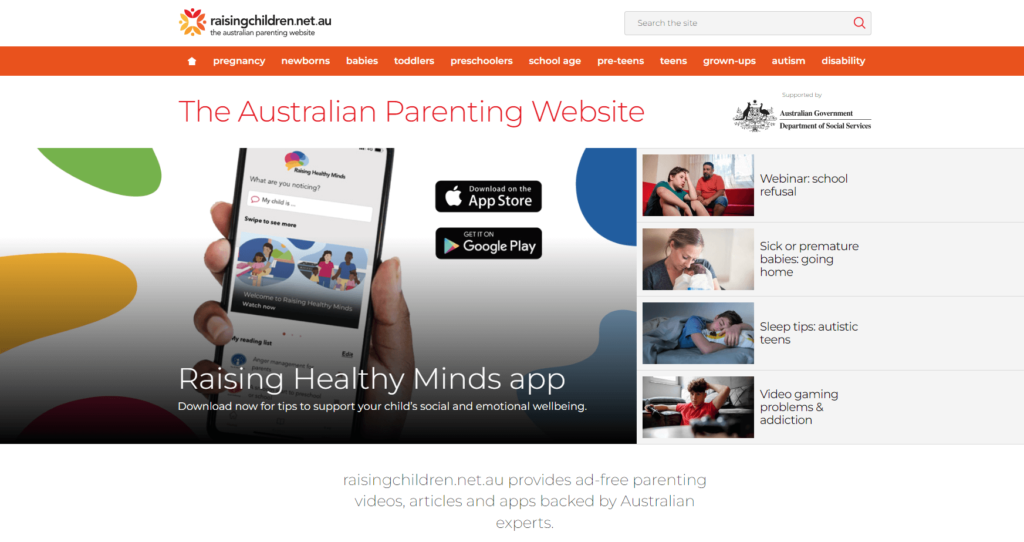Single parenthood presents challenges not present in two-parent families, making it a lonely experience. However, a significant support network exists for single-parent families on the Sunshine Coast. You just need to know where to look.
This article will provide tips and resources for single parent households.
Key takeaways
- Stable custody arrangements are crucial to effective co-parenting.
- A parenting plan offers structure but doesn’t provide legal enforceability.
- Parenting plans should cover aspects of a child’s living arrangements, communication and decision-making.
- If you have a formal custody arrangement, consider its consequences and how to enforce it.
- Child support can be vital for single-parent families.
- Child support can be organised through a limited or binding agreement.
- The Sunshine Coast has various support services for single parents.
- The Raising Children Network provides up-to-date, scientifically verified information for parents.
- Raising Mamas provides a community and helps new mothers through professional sessions run by experts.
Legal Tips for a Single Parent
Stability is critical for a single-parent family. There are legal avenues available to help you maintain a healthy family structure.
Custody agreements
Implementing effective child custody agreements is crucial in single-parent households. If you don’t have a custody agreement, here are some things to consider.
Parenting plan
Parenting plans are informal agreements. While they’re not legally binding, they provide a structured approach to co-parenting. Various elements go into making an effective parenting plan.
- Child’s Best Interests. The primary focus should always be on what is best for the child. Consider their needs, routine, and how the plan will affect their emotional and physical well-being.
- Communication. Establish how parents will communicate with each other and with the child. Decide on the methods (phone, email, text) and frequency of communication.
- Decision-making. Determine how decisions will be made. Define what decisions should be made jointly and what decisions can be made solely by the parent with primary caring responsibilities.
- Conflict resolution. Develop a protocol for resolving conflict. This could involve using a mediator or defining explicit boundaries to guide conflict resolution beforehand.
- Changes to the Plan. Agree on how and when the plan can be reviewed and revised. It’s important to acknowledge that their needs and circumstances may change as the child grows.
- Flexibility. Flexibility is as important as structure. Life is unpredictable. The ability to adapt to changes and make accommodations is crucial.
Check our blog about best practices when creating a parenting plan for more information.

If you have a formal custody arrangement, here are things to remember.
- Legal Obligations. Understand that a formal custody arrangement is a legal document. Both parents are legally obligated to adhere to the terms set out in the arrangement.
- Enforcement. If the other parent violates the custody arrangement, you have legal recourse. Document the violations and seek legal advice on how to proceed. The court can enforce the arrangement and take action against breaches.
- Legal Advice: If you’re unsure about any aspect of the custody arrangement or wish to make changes, seek legal advice. A family law lawyer can provide guidance and ensure that any actions you take comply with the law.
Child support
Child support can be a critical part of ensuring a secure single-parent home. A parenting payment can be organised through a limited or binding child support agreement.
Limited agreement
- Legal Advice Not Required. Parents do not need legal advice before entering a limited child support agreement. However, getting legal advice is still recommended to understand the implications fully.
- Duration and Changes. These agreements can be in place for a maximum of three years, after which they can be renewed, revised, or terminated. They can also be ended earlier under certain conditions, such as significant changes in circumstances.
- Amount of Support. The amount agreed upon can be less than, equal to, or more than the amount that would be assessed under the Child Support Agency’s formula, but it must be at least the annual rate of child support assessed by the agency.
- Termination. Either parent can terminate the agreement after three years or if there is a significant change in circumstances. Additionally, a new limited or binding agreement can replace it.

Binding agreement
- Legal Advice Required. Both parties must receive independent legal advice before entering a binding child support agreement. This ensures that both parties understand their rights and the agreement’s implications.
- Duration and Changes. Binding agreements do not have a set duration and can only be ended or changed by entering into a subsequent binding agreement or a court order setting aside the agreement.
- Amount of Support. There is no requirement for the support amount to align with the Child Support Agency’s assessment. Parents have the flexibility to agree on any amount they consider appropriate for the care of their children.
- Termination. Both parties must either agree to a new binding agreement that terminates the old one or obtain a court order to terminate a binding agreement. Courts will only set aside a binding agreement in specific circumstances, such as fraud, undue influence, or significant changes in circumstances that make it not in the child’s best interests.

Do you need legal assistance with your family law matter?
Community Support Network
The Sunshine Coast has many parenting resources for separated parents. Here are some available to assist those single parents.
1. Raising Children Network

The Raising Children Network is a website that offers current, scientifically-based information about pregnancy, child-rearing from birth to 18 years, and self-care for parents and carers. It provides practical ideas and easily digestible information. It uses real-life examples without dictating specific actions parents or carers should take.
The website serves parents, carers, and professionals in Australia. Content is inclusive and diverse, catering to various cultural backgrounds and family structures. Content is produced in collaboration with over 400 Australian and international experts. These collaborations ensure it is based on the latest research.
2. Raising Mamas

Raising Mamas, founded by Kailah Cuckson, is an initiative designed to support mothers through their journey of motherhood, mainly focusing on the challenging first 12 months. The idea for Raising Mamas emerged from Kailah’s experiences and the realisation that many mothers feel isolated and lack a supportive community.
The program offers a 10-week series of sessions led by industry professionals. It provides guidance, support, and answers to mothers’ questions. It aims to create a nurturing environment where mothers can find solace, growth, and empowerment, helping them to thrive and find purpose in their motherhood journey.
Conclusion
Single-parenthood is a challenging experience. However, sound legal advice and practical support are available on the Sunshine Coast.
It’s crucial to consider child custody arrangements and child support to ensure a stable and well-supported family environment.
If you need help with family law matters, contact us for a free discovery call.

